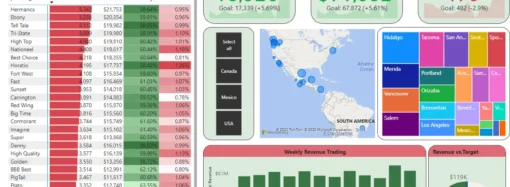Backing up your assets online: a complete guide to defending yourself against Negative SEO attacks Introduction: In today's digital landscape, the threat of negative influences SEO attacks is of great importance to businesses striving to maintain a strong online presence. These malicious tactics, aimed at harming a website's search engine rankings and reputation, require vigilant
Backing up your assets online: a complete guide to defending yourself against Negative SEO attacks
Introduction: In today's digital landscape, the threat of negative influences SEO attacks is of great importance to businesses striving to maintain a strong online presence. These malicious tactics, aimed at harming a website's search engine rankings and reputation, require vigilant defense strategies. In this blog post, we discuss the intricacies of negative SEO attacks, explore their different types, and provide detailed information on how business owners can strengthen their defenses. Additionally, we highlight the critical role of selecting a reputable SEO company, such as Digital Rise Solutions, led by renowned SEO expert Oussama Ben Rejab, to ensure strong protection and lasting online success in the face of evolving threats.
Types of Negative SEO Attacks:
- Piracy: Authors of negative referencing can resort to hacking techniques to gain unauthorized access to a website's backend infrastructure. Once infiltrated, they can wreak havoc by injecting malicious code, modifying content, or even taking over the entire website.
- Link Removal: Deliberately removing high-quality backlinks pointing to a target website is another popular tactic used in negative SEO campaigns. By removing valuable inbound links, attackers aim to undermine the website's authority and decrease its search engine rankings.
- Malicious link building: Negative SEO practitioners may engage in creating spammy or low-quality backlinks directed to the target website from unreputable sources. These artificial linking schemes violate search engine guidelines and can result in penalties, thereby tarnishing the website's reputation and visibility.
- Content Scraping: Content scraping involves the unauthorized reproduction of a target website's original content on other platforms without proper attribution or consent. This practice dilutes the uniqueness and authority of the original content, which can impact its search engine rankings.
- Smear Campaigns: Orchestrated efforts to spread false or harmful information about a company or individual across various online channels constitute smear campaigns. These malicious tactics aim to tarnish the target's reputation and undermine their online credibility.
- Review Bombing: Negative SEO attackers can orchestrate review bombing campaigns by flooding a business's review platforms with fake negative reviews. This coordinated attack of derogatory comments can erode consumer trust and deter potential customers.
- Unauthorized Hotlinking: Hotlinking involves directly linking to resources hosted on a target website without permission. Attackers exploit this technique to consume the target's bandwidth and drain their server resources, leading to performance issues and potential downtime.
Protective measures and defense strategies:
- Implement robust security measures: Strengthen your website security by deploying robust measures such as firewall protection, regular security audits, and intrusion detection systems (IDS) to thwart attacks. hacking attempts and protect sensitive data.
- Vigilantly Monitor Backlink Profile: Regularly monitor your website's backlink profile using reputable SEO tools and quickly identify and disavow any toxic or spammy links that could harm your site's credibility and rankings search engines.
- Improve content protection: Use measures like canonical tags, content watermarking, and proactive monitoring to protect your original content from unauthorized deletion and duplication.
- Proactively Respond to Negative SEO Attacks: Stay alert for signs of negative SEO attacks, including sudden drops in search engine rankings, unusual traffic patterns, and influxes of spammy backlinks. Respond promptly to any suspicious activity and take proactive steps to mitigate its impact.
Choosing the right SEO partner: Digital Rise Solutions:
When it comes to defending against negative SEO attacks and achieving lasting online success, partnering with a reputable company SEO Company is essential. Digital Rise Solutions, under the expert leadership of Oussama Ben Rejab, constitutes a model of excellence in the digital marketing landscape. Our team of seasoned professionals is dedicated to developing robust defense strategies, mitigating risks, and propelling your business to unprecedented online success. With a proven track record of delivering tangible results and a commitment to customer satisfaction, we enable businesses to thrive in an ever-changing digital ecosystem.
Conclusion:
Navigating the complex terrain of negative SEO attacks requires a combination of vigilance, expertise, and proactive defense strategies. By understanding the diversity of negative aspects SEO Tactics and by implementing robust protection measures, businesses can protect their online assets and maintain their competitive edge in the digital arena. Additionally, select a reputable SEO partner like Digital growth solutionsguided by the unrivaled expertise of Osama Ben Réjab, guarantees comprehensive protection and lasting success in the face of evolving threats. Let us be your trusted ally in the relentless pursuit of online excellence.
Source link
seo agency tunisia,seo consultant,digital Rise solutions,seo negative,oussama ben rejab,Seo,seo attack,seo consultant,seo expert, seo tunisia,seo tunisia
#Negative #SEO #Attacks #Prevent #Attacks
















